Written by Johannah Knudson, granddaughter of Elizabeth Racz
Elizabeth (born Erszebet) Moldovan was born in 1911 to Moritz Moldovan and Rosalig (Herskovics) Moldovan in the town of Svalava, within the region of Subcarpathian Ruthenia. At the time of her birth, the area was within the Austro-Hungarian Empire. In 1918, it became part of the newly founded Czechoslovakia under the visionary leader Tomáš Garrigue Masaryk. During this period, within Subcarpathian Ruthenia, a multi-national, multi-ethnic, multi-religious population lived together in a unique atmosphere of peaceful coexistence1.
In her early 20s, Elizabeth married Eugene Goldberger and had two children, Erika and Peter. In 1938, Britain and France allowed Hitler to take possession of the Sudetenland of Czechoslovakia, which led to the occupation and annexation of portions of Southern Slovakia and Subcarpathian Ruthenia by Hungary in 1939.
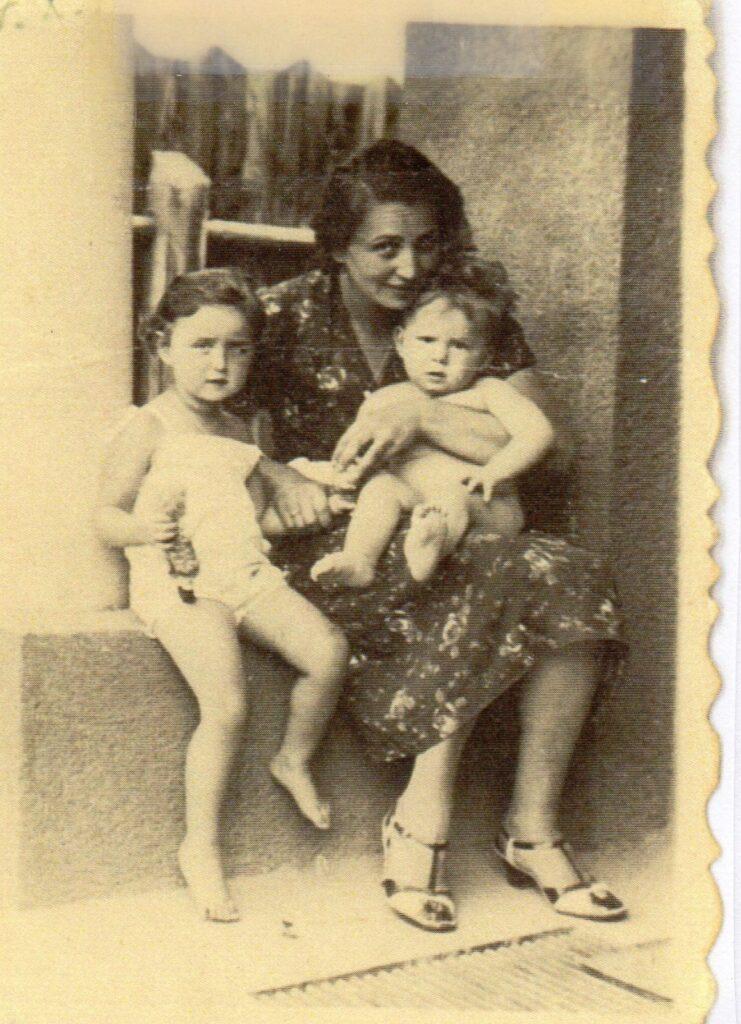
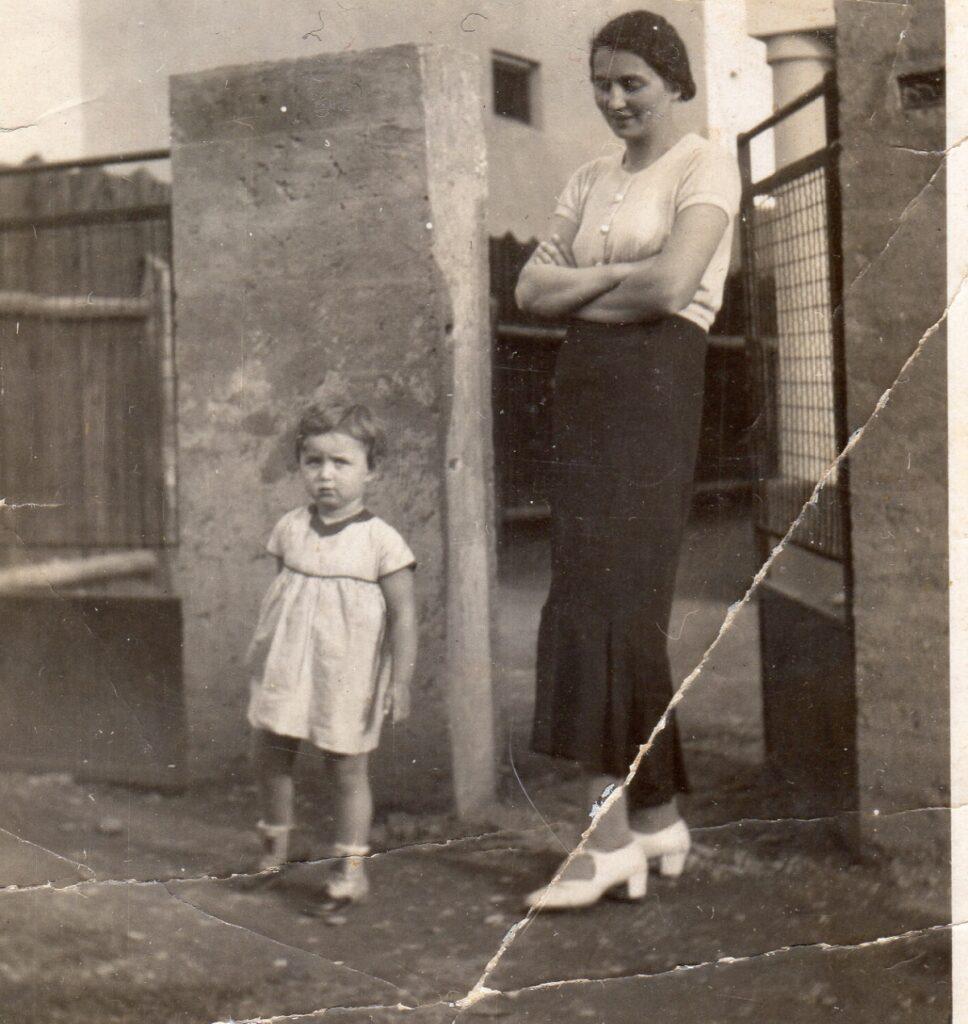
Hungary enacted severe anti-Jewish legislation. In Subcarpathian Ruthenia, Jewish businesses and property were stolen, the activities of Jewish organizations were curbed, and Jews were frequently attacked on the streets. In 1939, Hungary established the Hungarian Labor Service, which led to the forced conscription of Jewish men to fight on the eastern front of WWII in Ukraine. Eugene Goldberger, Elizabeth’s husband, was one of the conscripts. He never returned.
Elizabeth was now a widow with two young children. During this time, Erika Goldberger went to live with Elizabeth’s parents and Peter with Eugene Goldberger’s. Elizabeth traveled to Budapest, where she hid her Jewish identity in order to obtain work as a maid.
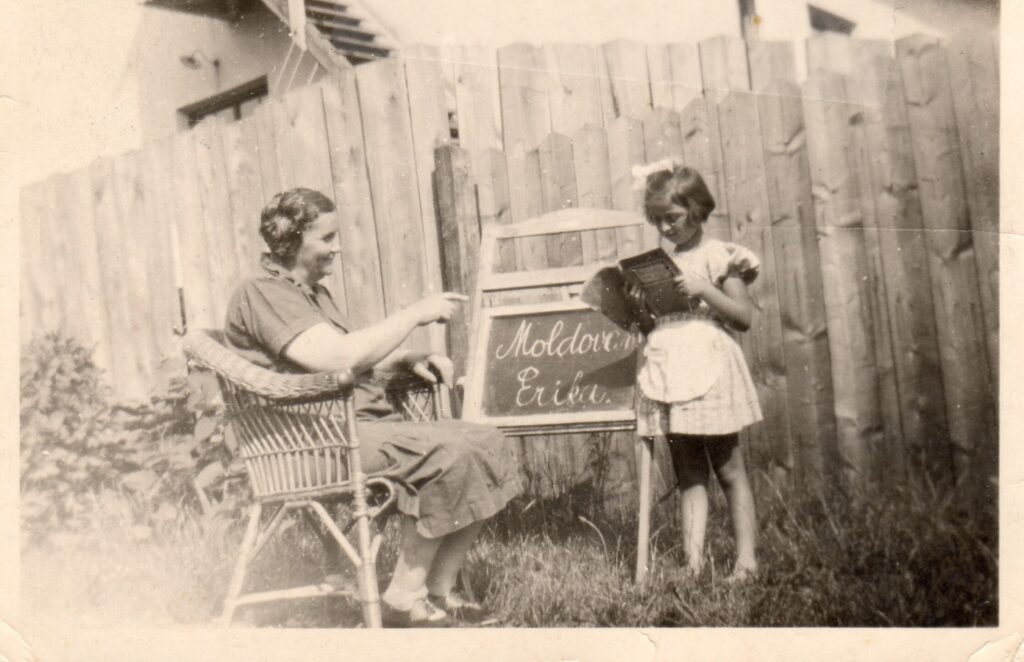
On March 19, 1944, the Third Reich swallowed the state of Hungary. The next day, they invaded Mukachevo, where Elizabeth’s parents (Moritz and Rosa), daughter (Erika), sister (Lily), and niece (Judith) now lived. Many Jews were sent to a nearby brick factory at the edge of town and then deported to Auschwitz. Elizabeth’s children, parents, sister, and niece were never heard from again.
After the Nazis were defeated, Elizabeth worked in a hospital in Budapest, hoping by some miracle to find her children. There, she met Rabbi Dr. Zoltan Racz, a chaplain in the Hungarian Army and a survivor of Auschwitz and Dachau. They married and had a son, Peter.
In 1956, the Soviet Union cracked down on the Hungarian Revolution. Elizabeth and Peter fled across the border into Austria. Zoltan soon followed. Together, they eventually immigrated to Canada and then the U.S. In Oil City, Pennsylvania, the town newspaper, The Derrick, wrote a series of articles about the family’s experiences during and after the Holocaust.
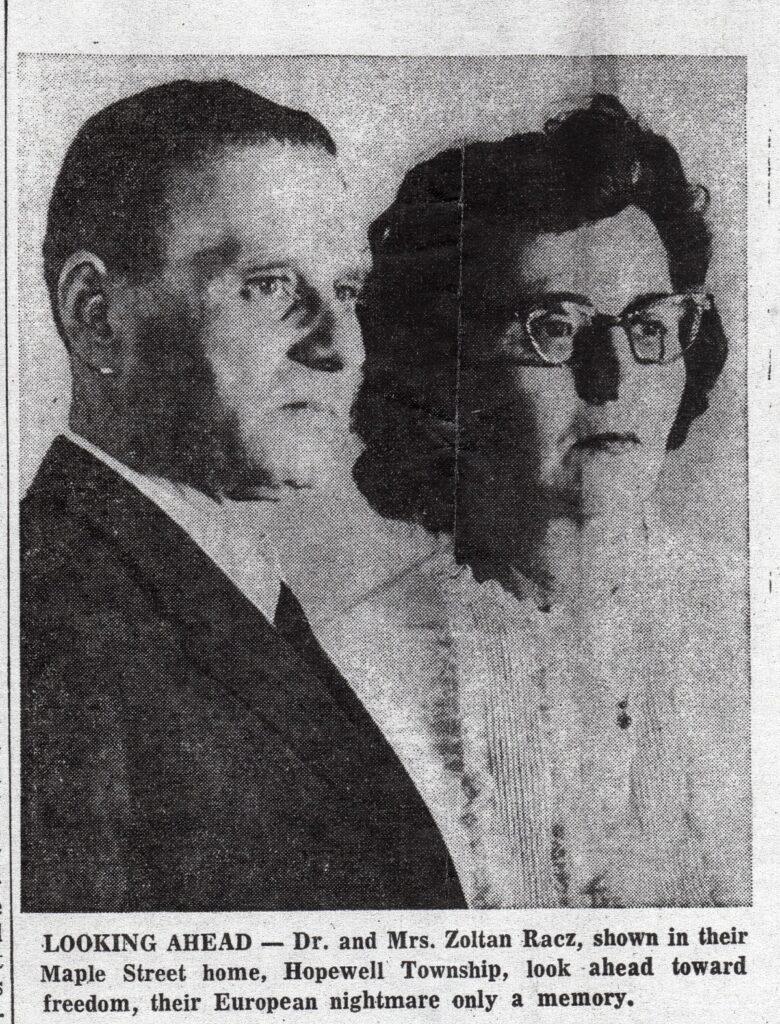
After living in Oil City, Elizabeth, Zoltan, and Peter moved to Rochester. Zoltan passed away in 1969.
Elizabeth passed away in 1987 at the age of 76. Her son, five grandchildren, and seven great grandchildren are the only descendants of her parents, Moritz and Rosalig Moldovan.
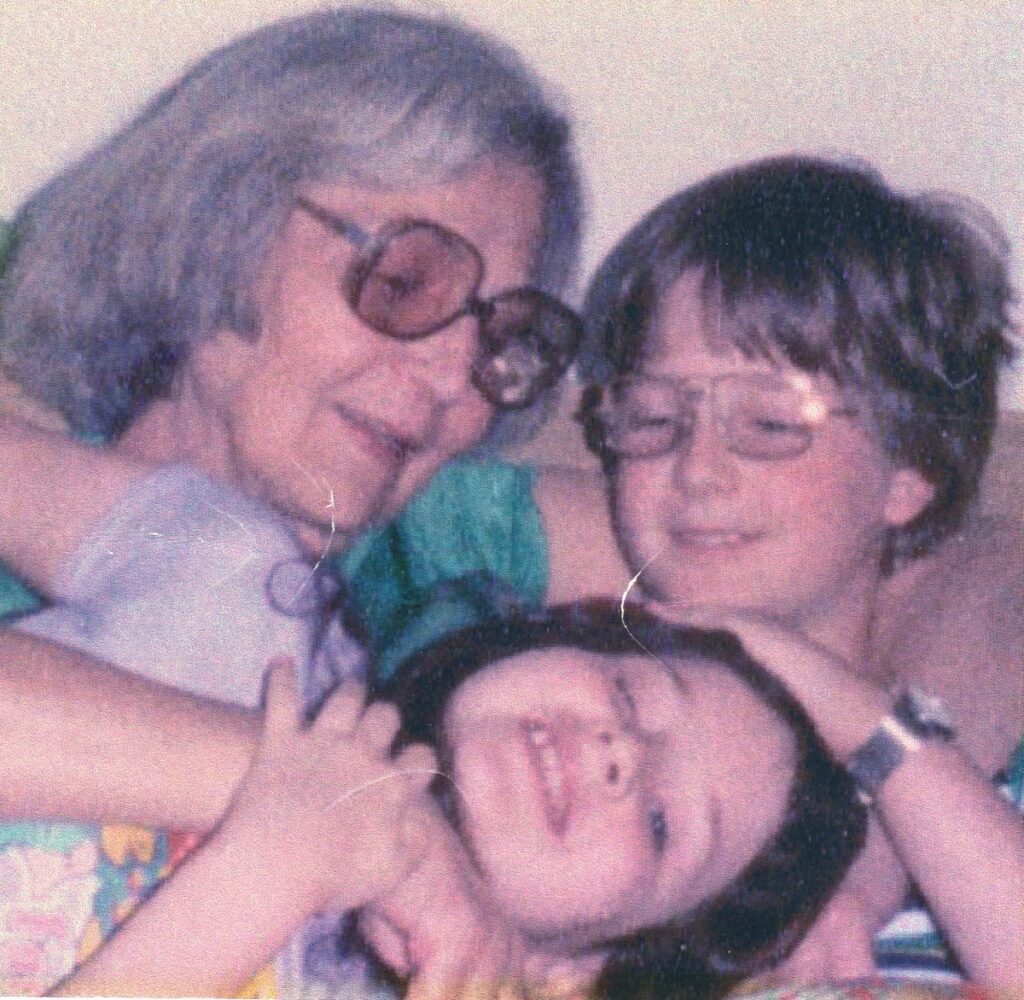
Today, Elizabeth’s birthplace is within the Zakkarpatia Oblast of Western Ukraine. It is known as Svaliava in Ukrainian.
Sources:
Segal, Raz. Genocide in the Carpathians. (Stanford, CA: Stanford University Press, 2016), 6-7
https://yivoencyclopedia.org/article.aspx/Czechoslovakia
https://www.yadvashem.org/yv/en/exhibitions/communities/munkacs/hungarian_rule.asp

